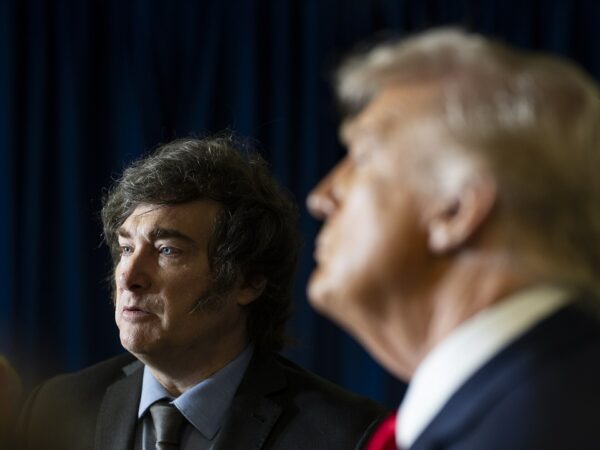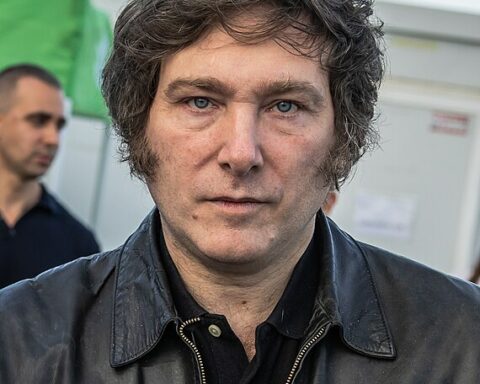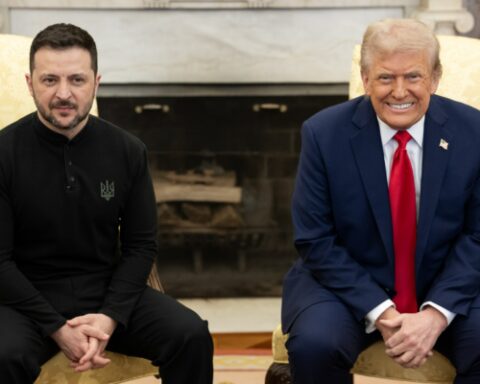When Javier Milei campaigned for the presidency of Argentina, he called the peso “excrement” and vowed to eliminate it. But nearly two years into his administration, the libertarian economist is now reportedly spending Argentina’s scarce U.S. dollar reserves to buy pesos and prop up their value — a move that marks a striking reversal from his promises to let market forces run free.
The embattled president now finds himself asking Washington for billions in aid to keep the currency from collapsing. The peso, once dismissed by Milei as a symbol of Argentina’s economic decay, has become the chief obstacle to his broader market overhaul.
Milei’s government has achieved what many of his predecessors could not. He has slashed spending, cut regulations, and dramatically slowed inflation. Yet his inability to break free of Argentina’s decades-long obsession with defending the peso threatens to undermine those gains.
Keeping the peso artificially strong has helped tamp down prices in the short term. But the policy comes with steep costs: it discourages exports, drains precious reserves, and signals to investors that Argentina’s old habits of market intervention persist.
“The right thing to do from an economic point of view would be to let the peso float,” said Martín Rapetti, an economist at the University of Buenos Aires. “But the Milei administration fell in love with a strong peso, which is very common among politicians here in Argentina.”
Milei insists that devaluations — long a feature of Argentina’s boom-and-bust cycle — are not the answer. “It’s clear to us that the solution isn’t to return to the catastrophic path of recurrent devaluations,” he said last month.
The president inherited a broken system from his left-wing predecessors, who maintained multiple exchange rates to mask the peso’s weakness while printing money to fund spending. By the time Milei took office, Argentina’s central bank reserves were nearly empty.
Now, the currency crisis is testing not only Milei’s economic doctrine but also his relationship with the Trump administration, which has stepped in with emergency support. Ahead of Argentina’s October 26 midterm elections, where Milei’s Freedom Advances party holds less than 15 percent of Congress, Washington has agreed to buy pesos and establish a $20 billion currency swap with Argentina’s central bank.
Treasury Secretary Scott Bessent also announced a $20 billion private finance facility to backstop Argentina’s debt. “Will it be enough? The psychology around the announcements really matters,” said Brent Neiman, a former U.S. Treasury official.
President Trump, meeting with Milei on Tuesday, made clear that continued U.S. assistance depends on Milei’s performance at the polls. “They know I’m not playing games,” Trump said of Argentina’s leaders.
Milei devalued the peso by 50 percent on his first day in office, sending inflation soaring above 25 percent per month. Since then, he has allowed the peso to depreciate gradually and later shifted to a trading band system. Despite the intervention, the peso remains overvalued by up to 35 percent, and it is the worst-performing currency among 52 tracked by Dow Jones, falling 24 percent this year.
Inflation has dropped sharply — from nearly 300 percent last year to 32 percent in September — but economic growth has stalled, and unemployment fears are rising. Approval of Milei’s government has fallen from 50 to 35 percent, according to pollster Zuban Córdoba.
Héctor Torres, a former IMF official, warned that Argentina’s current policy risks “costly mirages,” draining dollar reserves and edging the country toward another default. Many Argentines, scarred by decades of financial crises, continue to hoard dollars abroad or under mattresses.
“The whole thing becomes unsustainable,” said Robin Brooks of the Brookings Institution. “Instead of putting money to work in investment or job creation, people are basically just moving capital to protect it.”
For Milei, a president who promised to free Argentina from its past, the peso has become both a symbol of his challenge — and a reminder that breaking from decades of interventionist economics may prove harder than he ever imagined.
[READ MORE: Cease-Fire Shifts Fighting Inside Gaza as Hamas Reasserts Control]







